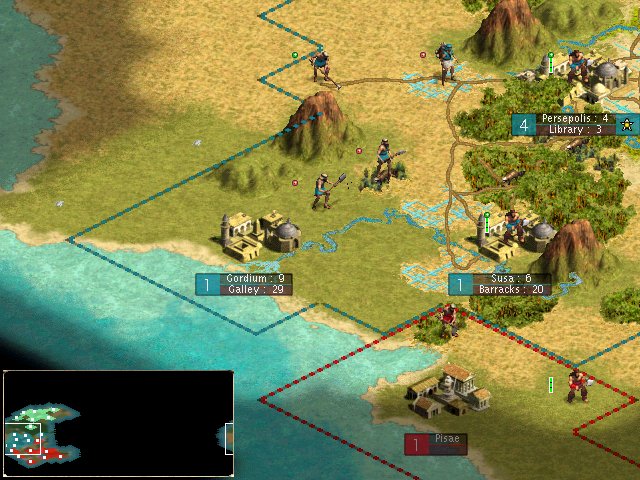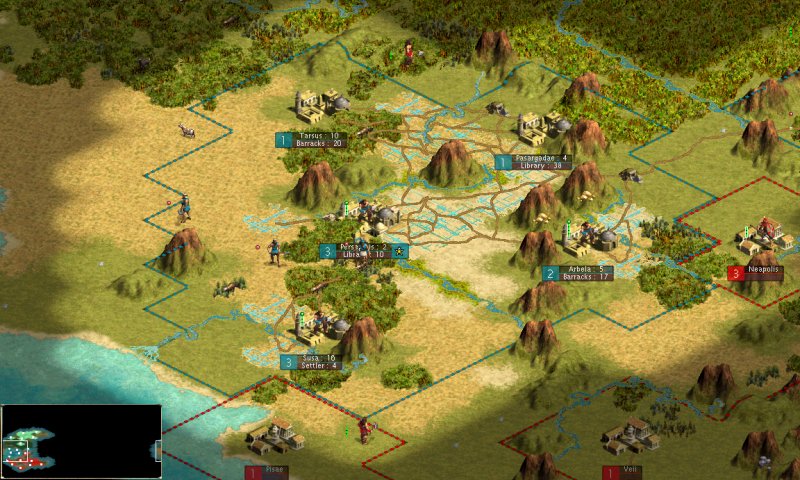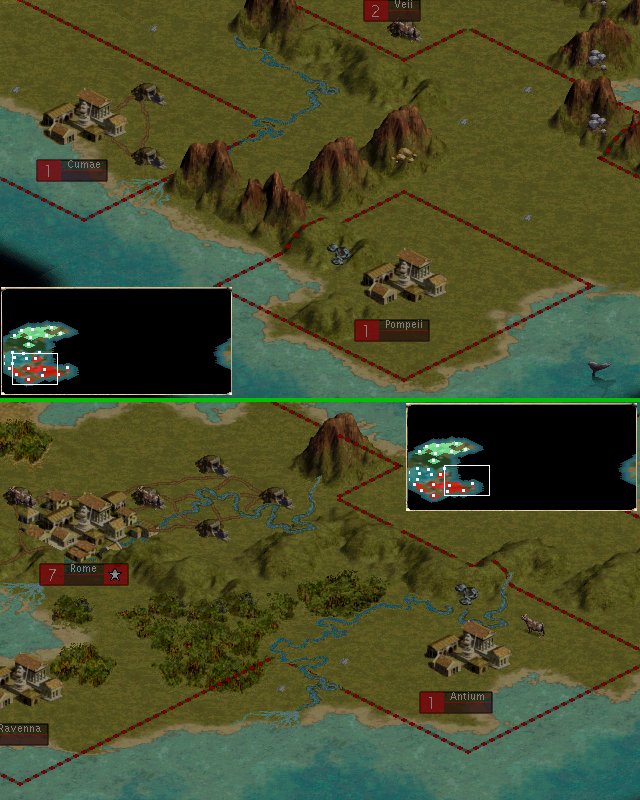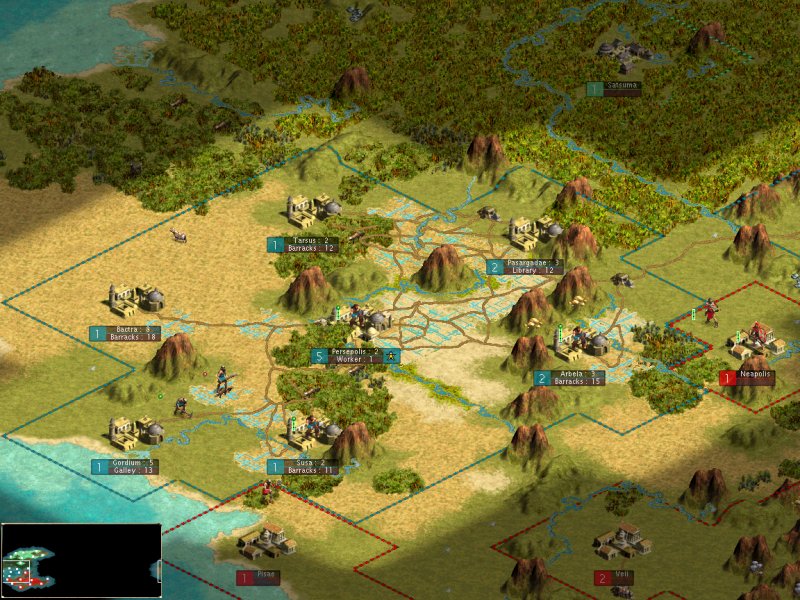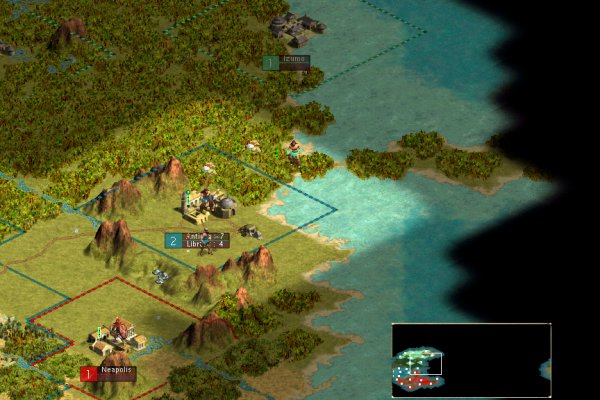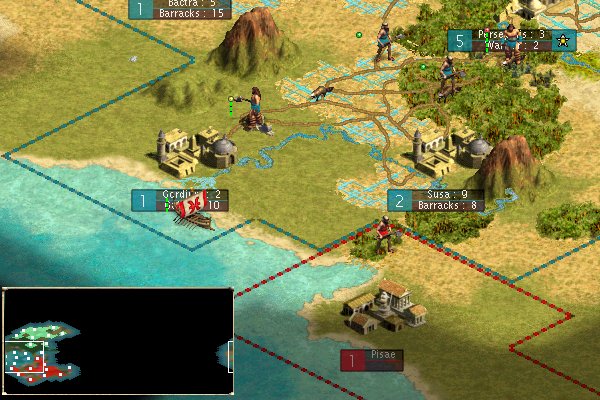back from my GotM fatigues, with a fresh update:
Persepolis, Royal Collection, royal correspondence, ca. 1200 BC
This is a transcribed copy of a message sent from the Lord of Persepolis to the local worker's guild, and probably to all the other detachments of that astounding organization that led with terrific efficience the task of the workers team employed in ancient Persia to connect the cities and improve the land. The originals were never retrieved.
Sirs,
i have studied with tireless attention your reports on a possible shortage of work force for the next future. The problem you describe is real, and is already taking effect. Our next city, soon to be founded on the southeast coast, won't be able to benefit immediately from a road connecting them to the main network.
Curiously, this shortage is a consequence of our success. As time passes, new cities are founded, new land is claimed and more territory requires proper improvement. The increased demand of workforce is simply too much to cope with, even for a noble and industrious organization as yours. However, i cannot overlook the fact that an excessive emphasis on worker training may reduce too much our population, hamper our cultural and scientific progress, reduce our productivity and delay too much the strengthening of our military.
I have given orders to the governor of Arbela to delay the completition of the military training grounds and focus on assembling new worker team. This extra unit is all the reinforcement i can promise you, at least in short time. Use it wisely.
This work force improvement comes at the expense of our military potential, and we must be aware of the fact that the Romans could decide to take advantage of it. We CANNOT allow them to catch us off guard, or we could face dire consequences. For this reason, i'm asking every organized structure in Arbela to follow with the maximum attention possible any possible suspicious activity of the Romans near our borders.
I need you, and every worker employed by your guild, to keep the eyes open and report everything that may be seen as unusual Roman activity, no matter how insignificant it could be.
Persepolis, museum of ancient history, unclassified scrolls, ca. 1125 BC
Likely a genuine transcribed speech of the governor of Gordium to the local populace. Although the source is unknown, the year of foundation of Gordium is within the error margin of the radiometric dating.
"Citizens of Gordium!
this is a great day for all of us! We are no more a small village of farmers and fishermen, but a true recognized Province of the Persian Domain, with Gordium as its main city!
Today we are a small, isolated town. But tomorrow we will be big, rich and strong! Our location is good and healthy! We have no costrains in expanding our city! We have a lot of virgin land to work and develop! Soon we will have a road connecting us with the rest of the Domain, and so we'll no more lack any of the goods that are traded in the markets of Persepolis! And our coastal location will give us the benefit of the maritime trade! We have an opportunity to become a great city, let's not miss it!"
Persepolis, Royal Collection, royal corrispondence, ca. 1125 BC
Another transcribed message from the Lord of Persepolis, this time to the Governor of the newfound city of Gordium. It's a bless that the orders sent to the Lord were usually transcribed and stored safely in the royal archive of the epoch, since in most cases, including this one, the original letters are lost.
Governor,
it's paramount for our proud country to start as soon as possible to christen naval units and start exploring the coastlines of our main continent. If there are ways to reach other populations abroad, Persia must absolutely be the first to contact them, or else we are likely to lose the technological and economic advantage over our neighbours. Until Rome finds convenient to collect our annual payments and learn our technology, they are likely to stay at peace. When this advantage is no more, they would have no reasons to refrain from attempting a military takeover of our country.
Being the other coastal city busy in an important strategic task, your city is the only one that can produce naval units in reasonable time. It's essential that any construction project thay you were planning be delayed until the strategic needs of our country are satisfied. I hereby send you the plans for the construction of a wooden sea vessel. It's your duty to have two of those units built and sailing the seas as soon as possible. And it's the duty of every able citizen of Gordium to partecipate in the construction and to work hard for the success of it.
You have a very important task to fulfill for the greatness of Persia. Do not disappoint your country!
Arbela, museum of ancient history, worker's guild scrolls. ca. 1125BC
A small report on the current tasks assigned to the worker teams active on the epoch.
Our worker force is currently split in two. Three teams are operating in the western regions of our country, while the remaining two are working the hinterland of the western settlement of Antioch. We are still experiencing a shortage in workforce, and so careful planning is necessary to optimize the work of our teams in order to give our country the best advantage we can.
With the limited workforce at our avail, we are currently engaged in many different tasks. Team 1 is in place to build a road connecting the village of Gordium to the rest of our empire. Team 2 is roading and irrigating the plains west of Persepolis where a new city is about to be founded. Team 3 is moving to a small forest between Persepolis and Gordium where an important source of furs is in need to be connected, possibly for trade reasons. Team 4 and 5 have just completed the deforestation of the area southwest of Antioch and are now roading and mining a productive grassland area.
Since Arbela is now busy building a military training structure, no new teams are expected to be ready anytime soon, so the planned work on the forest east of Arbela will be further delayed.
Arbela, museum of ancient history, cartographer's scrolls, ca. 1100 BC
A map of the region around the city of Gordium, probably drawn for the local worker's guild, showing the worker teams employed in the area in the given period
